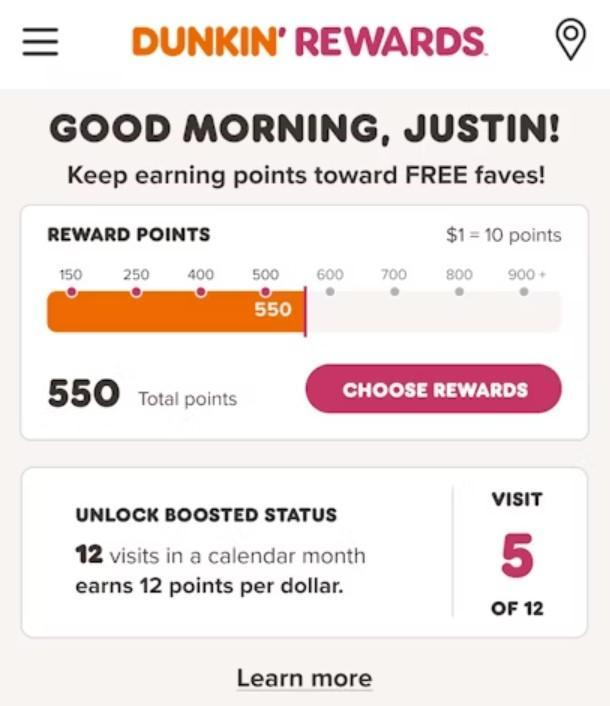
In the B2B sector, effective marketing is the key that helps your business stand out from the crowd. But without the right tools, B2B marketing can get complex — not to mention expensive. Marketing automation tools take some of the most time-consuming marketing tasks off your hands, reducing errors and saving time for your marketing team.
The question is: With so many options out there, which B2B marketing automation tool is right for your business? We’ve compared some top options, including Constant Contact, Mailchimp, HubSpot, and Zapier, to help you find the marketing automation platform your business needs.
Do you need a B2B marketing automation tool?
B2B marketing is a massive industry in the U.S. In 2024, spending in this sector is expected to reach up to $37.7 billion. That spending goes into digital content creation, research, software, traditional ads, and more. Experts expect the B2B marketing sector to continue growing as new businesses bring more competition to the market.
With that in mind, your business might not need marketing automation — but it can make a huge difference. Automating marketing tasks will help streamline the content creation and marketing processes, saving time and helping your business stay ahead of the competition.
Examples of B2B marketing automation in action
So, how does B2B marketing automation work? Here are a few examples of automation in action:
- Email responses: Digital marketing automation tools will automatically send welcome emails, special offers, responses to customer service requests, and more.
- Onboarding: Some tools will automatically onboard new users who sign up for your service.
- Subscription renewals: Your automation tool can automatically renew users’ subscriptions at the end of a term.
- Data sorting: The best automation platforms collect and sort customer data into relevant lists.
What is the difference between a CRM and a marketing automation tool?
A customer relationship management (CRM) platform offers some automated functions, but it isn’t quite the same as a marketing automation tool. The main difference is that a CRM’s main purpose is to store and sort crucial customer data, including customer activity, contact information, and preferences.
A marketing automation tool, on the other hand, automates certain actions based on triggers. For example, your marketing automation tool might be “triggered” by a customer signing up for email alerts — it will then automatically send a welcome email and store the customer’s data.
A CRM and marketing automation platform are both crucial marketing tools that can — and should — work together. When you integrate these tools, you’ll be able to seamlessly automate marketing tasks while storing and analyzing data, resulting in more streamlined, efficient marketing campaigns.
What are the best B2B marketing automation platforms?
When it comes to selecting the best marketing automation platform for your business, you have no shortage of options. Below, we’ll compare a few of the most popular tools across a variety of categories.
Email marketing automation tools
Email marketing software takes the time and hassle out of staying connected with your customers. These tools can automate email replies, promotions, welcome emails, birthday messages, and more. The right software will not only save you time but help keep your emails relevant.

Here are a few of the most popular email marketing automation tools on the market this year:
- Constant Contact: An all-in-one marketing automation platform that includes customizable, intuitive email automation tools
- Mailchimp: One of the most popular email automation brands — helpful for beginners, but not as scalable as other options
- HubSpot: A CRM platform that offers some email automation tools
- ActiveCampaign: An affordable, beginner-friendly CRM and email automation platform
- ConvertKit: A popular email marketing platform specifically designed for creators
- GetResponse: An easy-to-use email marketing automation tool with limited features
Social media automation tools
If you use multiple social media platforms to market your business, social media automation tools will save you time and keep your brand consistent. These tools allow you to post to multiple platforms at once. You can also schedule and automate social media posts, maintaining your brand’s presence around the clock without wasting staff hours. The best social media marketing tools integrate with your lead generation and CRM platforms, so you can track social media engagement as your business grows.
Some of the best social media automation tools of 2024 include:
- Constant Contact: Constant Contact’s social media marketing features include automation, analytics, and strategy development tools
- Hootsuite: A social media calendar and scheduler to plan, sync, and track social posts
- Buffer: A social media toolkit specifically designed for small businesses
- Sprout Social: A popular automation tool that manages and analyzes social media accounts — comprehensive, but not cheap
- SocialBee: An intuitive social media management platform powered by AI
- Sprinklr: A unified customer experience management (CXM) platform that includes social media automation tools
E-commerce marketing automation tools
If you manage an e-commerce business, you need more than traditional marketing strategies. E-commerce marketing automation tools integrate with popular e-commerce apps like Etsy, Shopify, and Stripe. They allow you to automate emails, messaging channels, and ads to drive more customers to your site.
While you can use any automation software for your e-commerce business, platforms specifically designed for e-commerce come with more features that will help drive sales — these tools are particularly helpful for small or single-person businesses. Here are a few of the most popular e-commerce automation tools on the market:
- Constant Contact: Constant Contact’s e-commerce marketing tools integrate with all major e-commerce platforms and are designed to target interested customers, driving more sales.
- Klaviyo: A marketing automation tool with multiple e-commerce integrations.
- Shopify Plus (for Shopify users): If you sell products on Shopify, this subscription comes with hosting, automation, and third-party integrations.
- Omnisend: An email marketing and SMS platform designed for e-commerce businesses.
- Dotdigital: A customer engagement platform with e-commerce integrations and email automation tools.
Lead generation and nurturing tools
Lead generation is the ultimate goal of all marketing automation tools. However, a lead generation platform is specially designed to generate, manage, and maintain leads over a period of time. These tools take on repetitive tasks that save time for a sales team, such as analytics, recording customer data, and reaching out to new leads via email or SMS.
A few of the most popular lead generation platforms available in 2024 include:
- Constant Contact: Constant Contact’s lead generation platform helps sales teams create targeted content, convert leads, and retain customers
- Leadpages: A tool to create attractive landing pages that draw in more customers — best when integrated with an email marketing platform and CRM
- Unbounce: An affordable landing page builder with AI-powered automation
- Marketo Engage (for lead nurturing): A lead nurturing tool powered by Adobe
- OptinMonster: A tool to drive website engagement with pop-ups and other features
- Intercom (for in-app lead generation): An AI-driven customer service platform to drive more leads within your website
Workflow automation tools
Workflow automation tools help to streamline in-house processes. These platforms integrate your marketing software, data storage, and communications to reduce errors and save time.
Here are a few workflow automation tools with positive reviews in 2024:
- Zapier: A popular automation platform that integrates all workplace apps
- Make: Formally Integromat, a workflow automation platform designed for creators
- Microsoft Power Automate: An automation platform for Microsoft tools
- Workato: A workflow automation platform with tools for separate business teams, including sales and HR
- Tray.io: An AI-powered automation tool with multiple integrations
Loyalty and referral marketing automation tools
Loyalty and referral tools are ideal for businesses focused on customer retention. With these programs, you can generate and automate loyalty campaigns. Collect customer data, automatically send emails with special offers, and distribute rewards like discount coupons.

Here are a few of the most popular loyalty automation tools of 2024:
- Smile.io: A loyalty app that allows shoppers to earn points as they shop
- Yotpo: A marketing automation tool designed to drive customer retention, with built-in loyalty and referral automation
- ReferralCandy: An automated referral program with varied pricing options
- LoyaltyLion: An automation tool to generate custom loyalty and referral programs
- Annex Cloud: A comprehensive platform to create and manage loyalty programs for businesses of all sizes
Advertising automation tools
Advertising automation tools generate targeted ads to bring customers back to your business. For example, when someone visits your site and leaves without making a purchase, the right advertising software will track that visitor’s data and promote your ads on their social media platforms.
Some advertising automation tools preferred by B2B businesses in 2024 include:
- AdRoll: A platform for automated ad retargeting, with various pricing plans
- Metadata.io: A software program to generate paid ad campaigns via Google Ads and other platforms
- Zalster: An advertising automation platform designed for e-commerce businesses
- Revealbot: A software program that creates and manages campaigns for Facebook, Instagram, and Google
- Trapica: A full-service marketing software platform for ad retargeting, campaign management, and analysis
- Shoelace: A hands-on platform that creates and manages paid ad campaigns
Pricing automation tools
Pricing can take up a lot of time and resources for a retail business — it involves extensive research and market comparison. Pricing automation tools utilize algorithms to automatically analyze the market and set prices for each good or service. While these tools aren’t used for marketing, they help save time and ensure you’re offering fair prices.
- Prisync: A software program that continuously monitors competitor prices
- Wiser: A competitor price monitoring tool for mid-to-large-sized retail businesses
- Informed: A cloud-based pricing platform that compares your prices to major retailers like Amazon and Walmart
- Skuuudle: A price monitoring and tracking tool emphasizing accurate, real-time data
All-in-one marketing automation platforms
Subscribing to each type of automation platform described above isn’t a practical solution. Multiple software platforms are costly and might lead to workflow and data-sharing problems — ultimately causing more problems than they solve. For truly seamless integration, consider an all-in-one B2B marketing automation platform.
All-in-one platforms offer multiple automation tools, such as CRM, email automation, social media marketing automation, and more. Keeping all your automation features on a single platform reduces errors and supports seamless coordination between teams.
Here are a few of the best all-in-one marketing automation platforms to consider in 2024:
- Constant Contact: Constant Contact’s all-in-one lead generation and CRM platform funnel leads through the marketing and acquisitions process, utilizing multiple automated features. You can try the platform with a free personalized demo to see if it’s right for your business.
- Marketo Engage: A full-service marketing platform designed by Adobe
- Marketing Cloud Account Engagement (formerly Pardot): A B2B marketing automation platform for Salesforce customers
- HubSpot Marketing Hub: A popular all-in-one marketing platform for retail and e-commerce
- ActiveCampaign: A marketing automation platform with e-commerce features
- SharpSpring: A marketing automation and CRM platform with ad retargeting
How to use B2B email automation to align sales and marketing
One major benefit of an automated marketing platform is better coordination between teams. Lead generation involves both sales and marketing teams — marketers generate leads while the sales team converts leads into customers. However, for an optimized customer experience, both teams should work together, avoiding repetition and maintaining the same brand messages.
B2B email automation helps align the sales and marketing departments. Automated emails reduce the risk of error and repetition, and provide all team members with the same access to customer data. With an all-in-one marketing automation platform like Constant Contact, leads are smoothly funneled between departments, creating a smoother customer experience.
Popular comparisons
Constant Contact isn’t the only all-in-one marketing automation platform out there — but when compared to other popular platforms, it stands out for its customizability and robust features.
Constant Contact compared to Mailchimp
Mailchimp offers low-cost email marketing tools, as well as social media marketing, e-commerce automation tools, and marketing analytics. Constant Contact offers a wider range of features, including A/B testing, and integrates with a wide range of third-party apps. While Mailchimp is an affordable option for email marketing alone, Constant Contact is a more comprehensive solution for all-in-one marketing automation.
Constant Contact compared to HubSpot
HubSpot is a CRM and lead generation platform that offers a variety of automation tools. It has robust reporting options, but Constant Contact offers more customizability for businesses of all sizes.
Choose the right B2B marketing automation platform for your business
Standing out in the B2B sector isn’t always easy, but the right tools make a difference. Automation helps take the time, cost, and hassle out of marketing, from automated emails to loyalty programs and pricing. To optimize your user experience, generate more leads, and drive more conversions, find an all-in-one marketing automation platform that fits your business’s needs.




